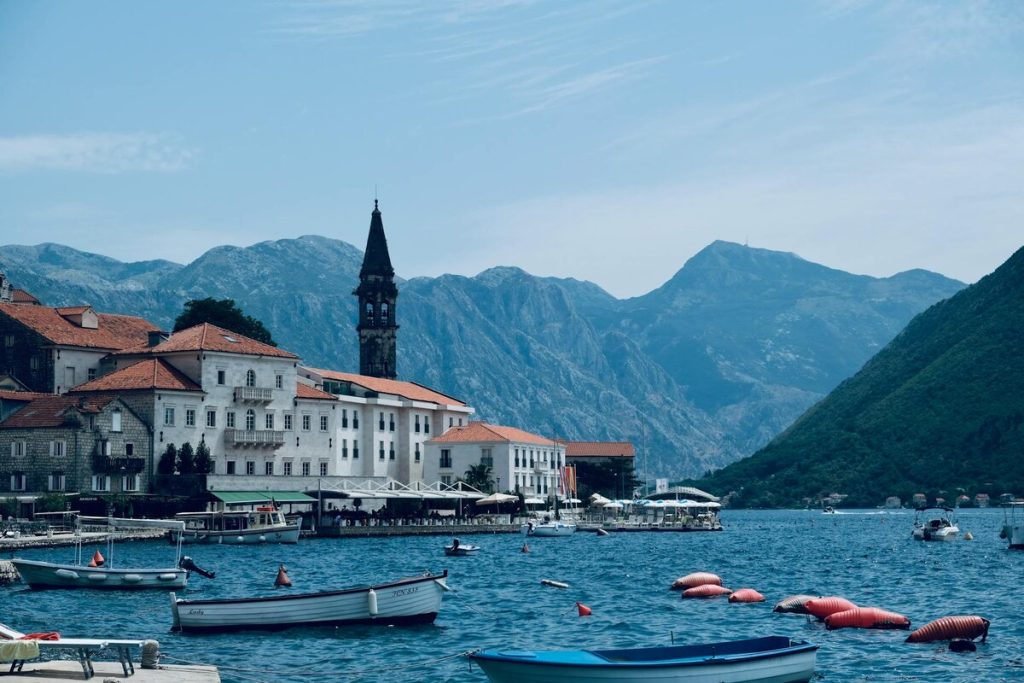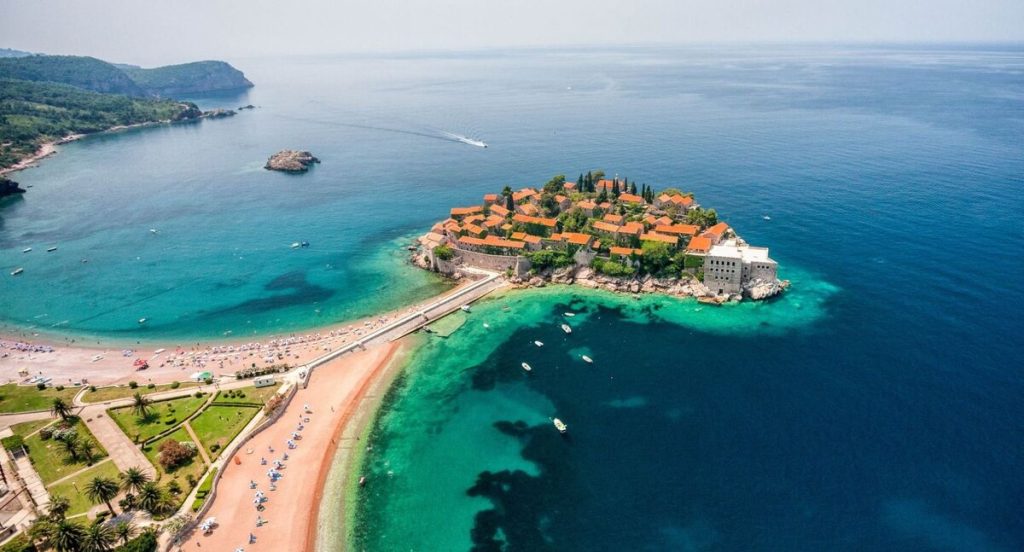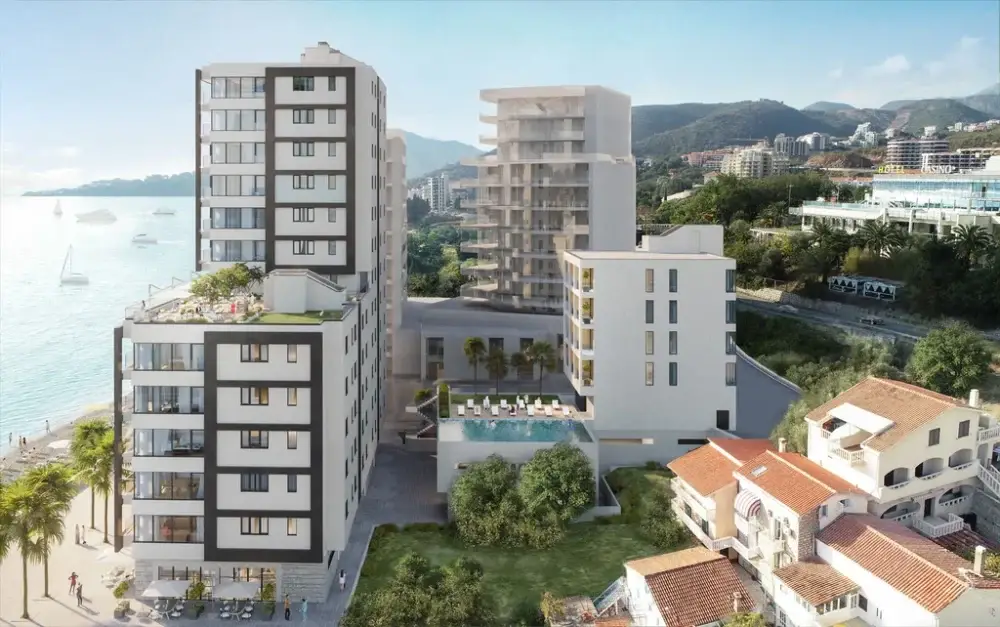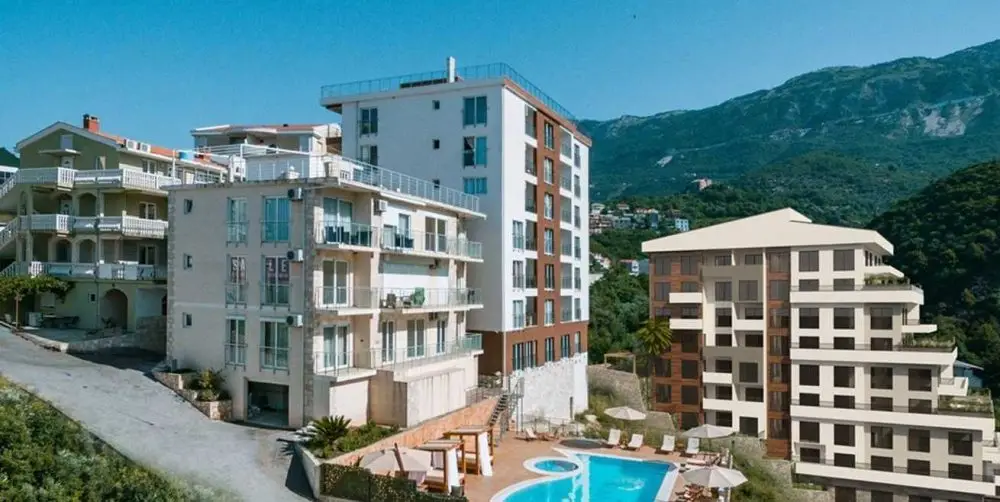Montenegro attracts Russians and other foreigners with picturesque landscapes, mild climate and the opportunity to buy property by the sea. But before you take that important step, it is worth considering all the advantages of living in Montenegro and understanding whether buying property here is really a justified decision.

Living by the Adriatic Sea: romance or pragmatism?
Montenegro is a wonderful blend of natural splendour and practical advantages. The country occupies a small area, but it is home to majestic mountain ranges, azure seas and ancient cities rich in history. Living here can be both a romantic fairy tale and a rational choice for those looking for a new haven to live or invest in.
Moving to this country interests more and more Russians. There are several reasons for this: comfortable climate, low cost of living and the opportunity to easily integrate into the local community. But you will not be fed up with the beauty alone, so it is worth weighing up the real advantages of living in Montenegro to understand whether this country is suitable for long-term residence or property investment.
The property market is developing dynamically, and the ease of buying a home for foreigners makes this country particularly attractive to investors. An important factor is the absence of a language barrier and the friendly attitude of locals to Russian-speaking emigrants.
Pros of living in Montenegro for Russians
 The country offers special advantages for Russians due to its historical and cultural ties. It is easy to adapt, do business and enjoy a quality life here without unnecessary formalities.
The country offers special advantages for Russians due to its historical and cultural ties. It is easy to adapt, do business and enjoy a quality life here without unnecessary formalities.
Climate and ecology: paradise by the sea
Montenegro is located on the Adriatic coast and has a typical Mediterranean climate. Summers are sunny and hot, with temperatures hovering between +28-30 °C, while winters are mild, rarely dropping below +10 °C. Spring and autumn are warm and pleasant, making life in the country comfortable all year round.
The ecological situation in Montenegro is considered one of the best in Europe. There are no large industrial enterprises polluting the air and water. Mountainous areas are covered with dense coniferous forests, which saturate the air with useful phytoncides. The transparent waters of the Adriatic Sea are ideal for swimming and sea walks.
The number of sunny days per year reaches 260, which is especially pleasing to the inhabitants of northern countries. The bright sunshine and soft sea breeze contribute to the improvement of well-being and quality of life. This climate is ideal for families with children, the elderly and anyone who values health and an active lifestyle.
Affordable living and security
Montenegro is famous for its affordable prices for food, accommodation, transport and services. The cost of living here is lower than in most European countries. The approximate cost of daily necessities for a family of three is around €1,000-1,200 per month.
Pricing Examples:
- Lunch in a mid-range restaurant – €15-20.
- A kilo of apples or tomatoes is about €1.
- A litre of petrol is about €1.50.
- A monthly public transport pass is €20.
Security is one of the main advantages of living in Montenegro. Crime rates here are low and serious incidents are extremely rare. The country is among the ten safest in Europe. The calm situation on the streets allows you to walk at any time of the day without fear for your life and property. This is especially important for families with children and pensioners who value stability and peace.
For Russians, adaptation is easy thanks to the widespread use of the Russian language. Many locals learn it in schools or know it thanks to tourism. This makes communication easier and allows everyday matters to be resolved quickly.
Is it worth buying property in Montenegro?
Interest in Montenegro property among Russians is growing every year. This is due not only to the beautiful views, but also to favourable conditions for investors.
Where it is profitable to buy property
Montenegro’s property market offers a wide range of properties for different purposes and budgets. Popular regions for purchase include:
- Budva is a tourist centre with a developed infrastructure. The average cost per square metre here is €2,500-3,500. It is suitable for renting and holiday rentals.
- Bar is a peaceful city to live by the sea. Flats cost between €1,800 and €2,200 per m². A great place for families and retirees.
- Podgorica is the capital of the country, which is suitable for business travellers. Here the price per square metre is €1,500-2,000.
There are additional costs to consider when buying a property:
- Transfer Tax – 3% of the value of the home.
- Notary services – €500-700.
- Realtor services – 3-5% of the object price.
Owning property in Montenegro also entitles you to a residence permit. This is especially favourable for those who plan long-term residence in the country.
Property for living in retirement or with children
Montenegro is an ideal place to live in retirement. Here there is no hustle and bustle of megacities, and life flows in a measured and calm way. Retirees can enjoy nature, fresh sea air and affordable prices for products and services.
Families with children will also find many advantages in Montenegro. There are international schools in the country, where education is provided in English, Serbian and Russian. The safe environment, clean air and warm sea create ideal conditions for children’s health and development.
Advantages and disadvantages of living in Montenegro
Any relocation requires careful analysis of all the pros and cons. Montenegro has many advantages, but there are also some disadvantages.
Advantages:
- Ease of adaptation due to the spread of Russian language and similarity of cultures.
- Possibility to obtain a residence permit when buying a property.
- Affordable living and property prices.
- Favourable climate and clean ecology.
- Safety and peace of mind.
Disadvantages:
- A limited number of high-paying jobs.
- Seasonality of tourism business, which affects revenues.
- Bureaucratic difficulties in the processing of documents.
Conclusion
 All the pros of living in Montenegro add up to an attractive proposition for those looking for a new place to live or invest. The warm climate, affordable prices, security and the possibility of easily purchasing property make this country ideal for Russians.
All the pros of living in Montenegro add up to an attractive proposition for those looking for a new place to live or invest. The warm climate, affordable prices, security and the possibility of easily purchasing property make this country ideal for Russians.

Investing in Montenegrin property is not just an investment, but a chance to start a new, comfortable life by the sea.
 en
en  ru
ru  de
de  ar
ar  es
es  nl
nl  hi
hi  fr
fr  it
it  pt
pt  el
el 










